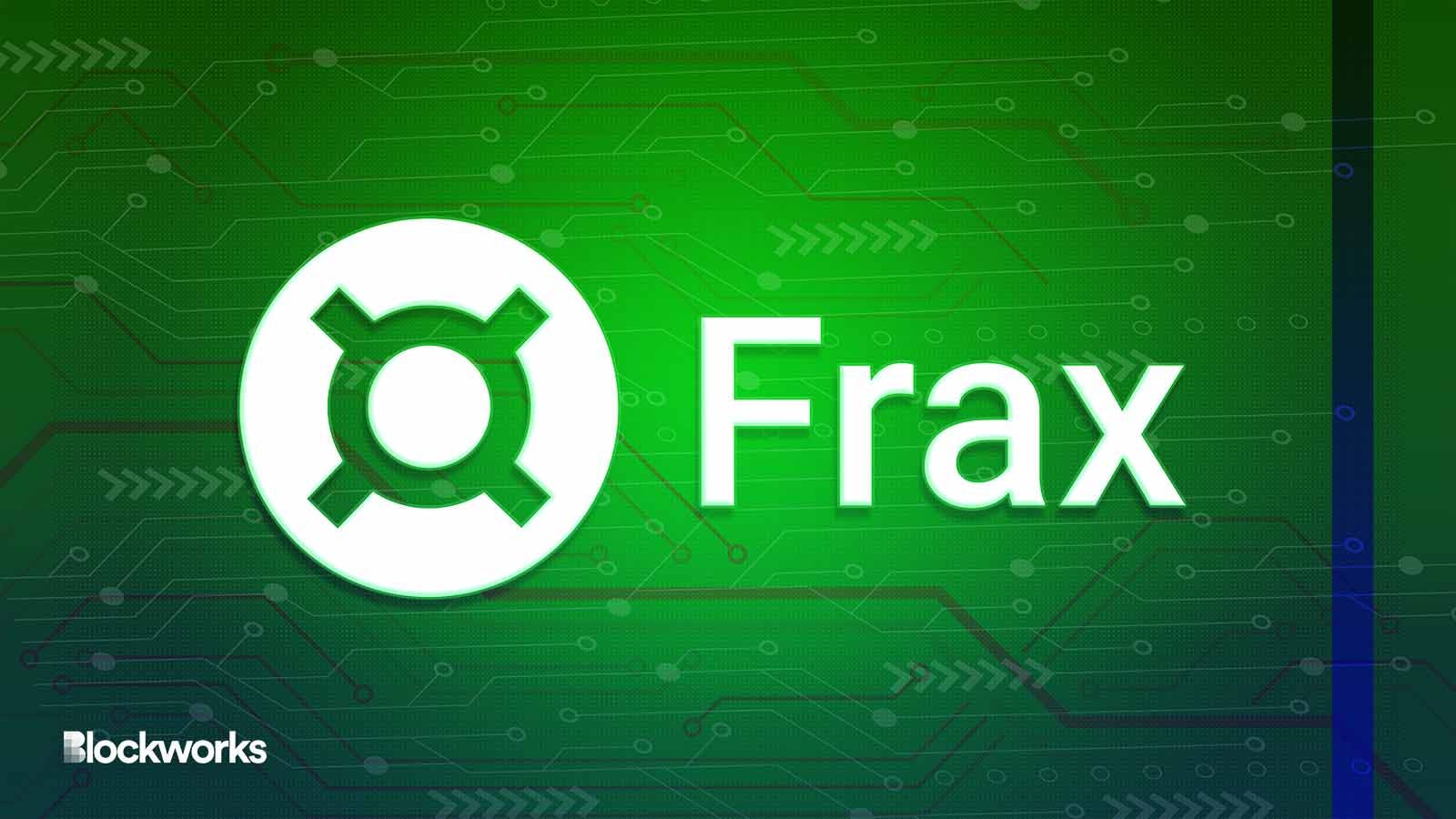Frax V2 enables permissionless DeFi validators
Frax Finance founder Sam Kazemian says an “open-ended market” is the optimal way to run liquid staking validators

Satheesh Sankaran/Shutterstock modified by Blockworks
The Frax ecosystem, according to the company website, “is a self-sufficient DeFi economy utilizing stablecoins as currency.”
While many elements of the ecosystem are already “self-sufficient,” the core team currently runs the validators, Frax Finance founder Sam Kazemian says. “It’s a curated list,” he says, rather than a permissionless setup.
Speaking to Blockworks on the Bell Curve podcast (Spotify/Apple), Kazemian explains that Frax Ether V2 will eliminate this trust limitation, instead allowing anyone to run validators “in a permissionless way.”
The main way to become a validator in the next iteration of Frax will be to post ether ETH as collateral, Kazemian says. Users will then “borrow” a validator and control it “as long as they’re paying this interest rate, which is an open market interest rate of what the market’s willing to pay to run validators and get the rewards.”
“Sounds a lot like just taking out a loan, right?” Kazemian says. “Except the difference is, instead of taking out a loan of dollars or something, the loan is the right to control a validator.”
Kazemian believes this approach is “the most general way” to provide the service as an “open-ended lending market.”
It’s really just a lending market
Kazemian points out that this is ultimately how decentralized lending works, using the example of Rocket Pool. “People come and they give their ETH, and then they mint rETH tokens, which is their [liquid staking token].”
“The rETH token is basically like a lending receipt,” he explains.
“If you go to Aave,” he says, “and you deposit ETH into Aave, what do you get?”
“You get aETH,” he says. “Someone borrows the ETH and then they start paying interest. Your aETH that you got for lending into Aave — it slowly goes up in value.”
“You’re earning the interest someone else is paying,” he says. “This is exactly what a decentralized lending or [liquid staking token] system is. It’s just a lending market.”
“So then we asked,” Kazemian continues, “how do you optimize this in such a way that it is perfectly optimized for [liquid staking token] markets, for people to borrow validators?”
Validators can be borrowed by anyone, from anywhere, he explains. Rather than needing any degree of trust or curation, a market mechanism “makes sure that these people are always at the cutting edge.”
“There’s some incentive for people to be actually competent and run these things at a good market scale. There’s an efficient market there,” he says.
“As long as you’re a competent validator,” Kazemian says, “and you are okay with paying the interest rate, you get to keep borrowing them and you keep running them profitably. You take a lot of the profit yourself and you pay whatever the interest rate is at the market.”
“You want to basically reward people that are the most efficient, as part of the design.”
Kazemian explains that Lido, a rival liquid staking platform, uses a “curated list of validators” for the ETH that is accrued by users minting stETH.
“Lido has to take that,” he says. “The lender is whoever’s minting stETH.” Lido has to hope, he says, that the validators are “not malicious or compromised.”
“You have that specific trust assumption in that model, so that’s the main difference,” he says.
“Frax ETH V1 is like Lido right now. Frax ETH V2 is like Rocket Pool in the sense that it’s totally decentralized — and there’s no more trust assumptions.”
Get the news in your inbox. Explore Blockworks newsletters:
- The Breakdown: Decoding crypto and the markets. Daily.
- 0xResearch: Alpha in your inbox. Think like an analyst.






